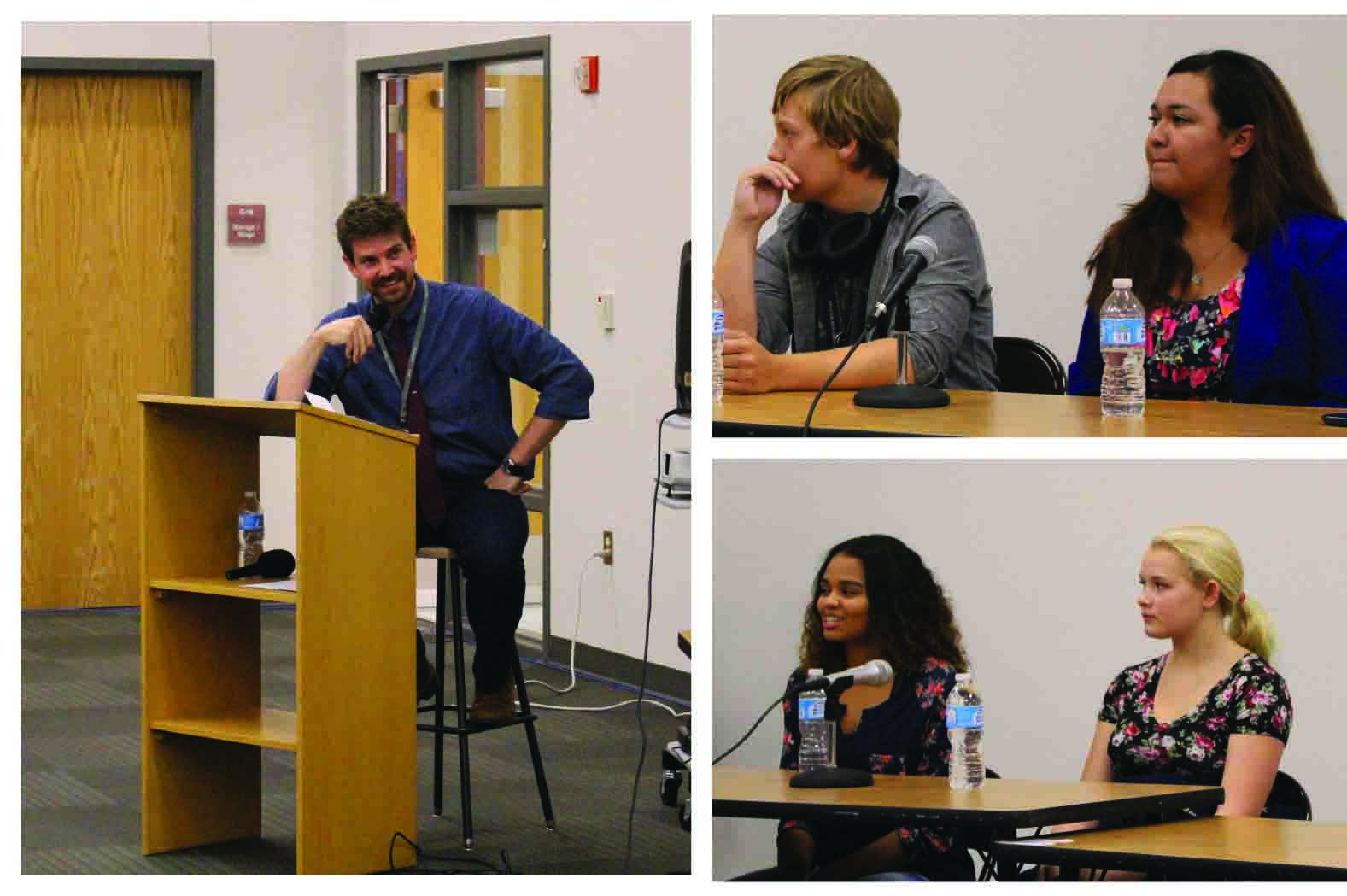
26 Nov Upfront and Center
Students Digital/Online Lives
BY CECELIA JONES
On Wednesday, October 22, 2014, Little Elm ISD hosted a first-of-its-kind Teen Panel where teens answered questions from an audience of parents about their digital/online lives. The idea came from Common Sense Education, an online resource for “digital citizenship” that helps kids learn to think critically, participate responsibly, and behave ethically online. (See commonsensemedia.org.)
Many of today’s teens use mobile devices and apps to communicate with their friends via texting, chatting, and online posting. The Teen Panel offered LEISD students the opportunity to talk openly with adults about how they use their devices.
Up-front and center at this event were Little Elm High School students Harrison Collins, Taylor Johnson, Maria Escareno, and Alee Dawdy. In addressing the misconceptions adults have about their online lives, their overall sentiments can be summed up with their statement, “Adults seem to think we are always up to something. We really aren’t.”
The students reported that the first sites they check each the morning are Twitter, Snapchat, and Instagram, which, they say, “are all about the number of followers.” They also have Facebook, but state they do not use it often.
The discussion extended beyond the use of mobile devices as entertainment. LEISD’s digital initiative provides students their own laptop by the 4th grade, and Chromebooks or iPads are used through high school graduation. “We use our computers for homework,” the students explained. “[Parents need to] trust us, but hold us accountable.”
At the end of the “tell-all,” the audience posed their own questions. “Does social media provide a positive or negative effect on students at school?” one parent asked.
“It’s all about giving teens the right amount of access to have a positive effect on learning,” students replied. They noted how technology can be beneficial for exploration in the learning process—not strictly for educational purpose, but in allowing students learn more about themselves. “We use the internet to help us find inspiration to follow our dreams.”
The students discussed needing balance between their offline and online lives. They understand the importance of connecting in person as well as digitally.
Teachers are also trying to find that balance in the digital world. They know that mobile devices or laptops are sometimes necessary to connect with students. But it is a fine line, and the district restricts technology in certain ways. LEISD has a no-cell-phone policy, which restricts students from texting during school hours, and social media sites are blocked.
The students reported having mixed feelings about these restrictions. “We are never happy about blocked sites at the school,” they said. “[But] most of the time, they are sites that distract us. It’s better that Facebook and YouTube are banned because they keep us from getting work done.”
The Teen Panel was only the first of several activities designed to offer parental guidance in communicating with teenagers. On November 1, Communities in Schools of North Texas, the LEISD School Health Advisory Council, and the Ryan Project hosted a free Parent University Conference at Little Elm High School, and welcomed anyone in the community to attend. The conference covered topics such as self-injury, bullying, financial literacy, “sexting,” substance abuse, gangs, the college application process, “ask the doctor”, and more.
Little Elm Living: December/January


